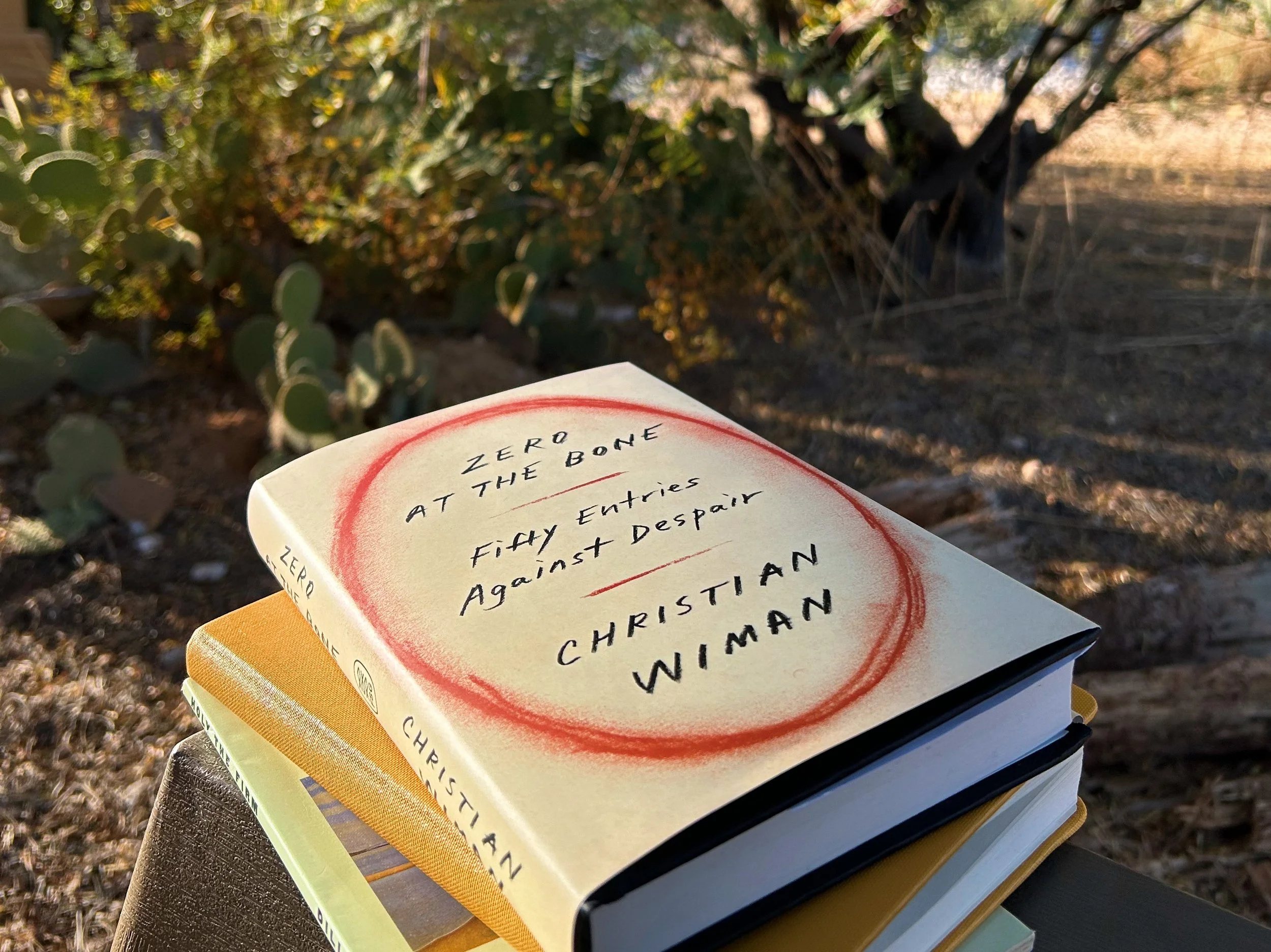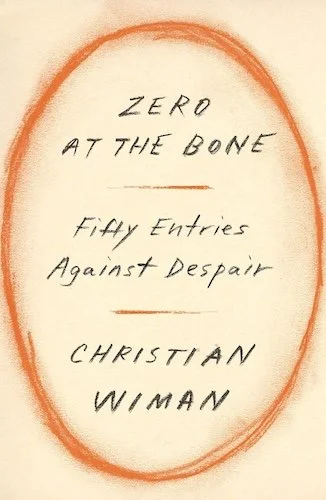Zero at the Bone
“People who have been away from God,” writes Christian Wiman in Zero at the Bone: Fifty Entries Against Despair (FSG), “tend to come back by one of two ways: extreme lack or extreme love, an overmastering sorrow or a strangely disabling joy. Either the world is not enough for the hole that has opened in you, or it is too much. The two impulses are intimately related and it may be that the most authentic spiritual existence inheres in being able to perceive one state when you are squarely in the midst of the other. The mortal shadow that shadows even the most intense joy. The immortal joy that can give even the darkest sorrow a fugitive gleam.”
If that paragraph resonates with you, so will the book. If it doesn’t, well, it won’t.
Wiman, whose work has comforted and confounded me over the years, has here set out to grapple—as only he can—with the mysteries and paradoxes of hope and despair, sorrow and joy. The book is comprised of fifty chapters of varying length, bracketed by a prologue and epilogue, both titled “Zero.” Some of the “entries” are nothing more than a single short poem. Others are longer essays. Others still read like a commonplace book; entry #18, for example, consists of a series of possibly related quotes from Zora Neale Hurston, Yehuda Amichai, Søren Kierkegaard, W.B. Yeats, Katie Farris, August Kleinzahler, Vernon Watkins, Gabriel García Márquez, and George Oppen.
These entries were written, it becomes clear, over many years. And for most of that time, Wiman was living with what seemed to be an incurable cancer. (As of last spring, he is in remission.)
“I had—have—cancer,” he writes in one of the early entries. “I have been living with it—dying with it—for so long now that it bores me, or baffles me, or drives me into the furthest crannies of literature and theology in search of something that will both speak and spare my own pain.”
Zero at the Bone doesn’t lend itself to summary; CliffsNotes ain’t happening here. That’s because Wiman isn’t making some singular, easily regurgitatable argument. He’s not solving a problem with actionable data. In these entries he’s searching and wrestling, lamenting and hoping. You can’t accuse him of not telling the truth.
“One doesn’t follow God in hope of happiness but because one senses—miserable flimsy little word for that beak in your bowels—a truth that renders ordinary contentment irrelevant. There are some hungers that only an endless commitment to emptiness can feed, and the only true antidote to the plague of modern despair is an absolute—and perhaps even annihilating—awe. ‘I prayed for wonders instead of happiness,’ writes the great Jewish theologian Abraham Joshua Heschel, ‘and You gave them to me.’”

